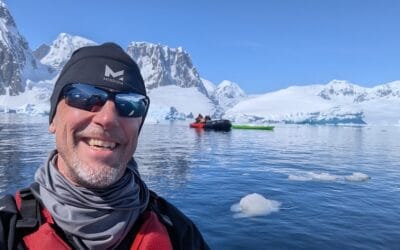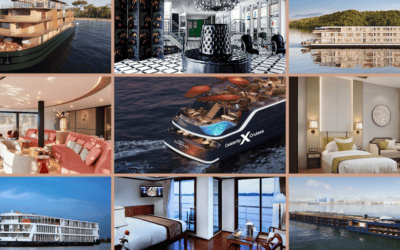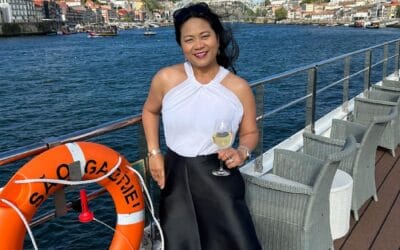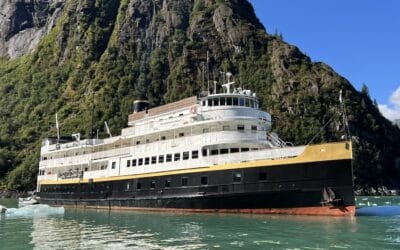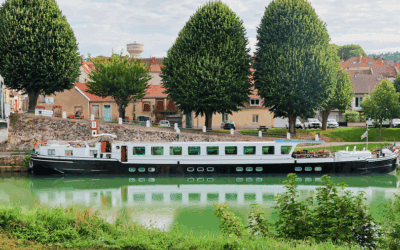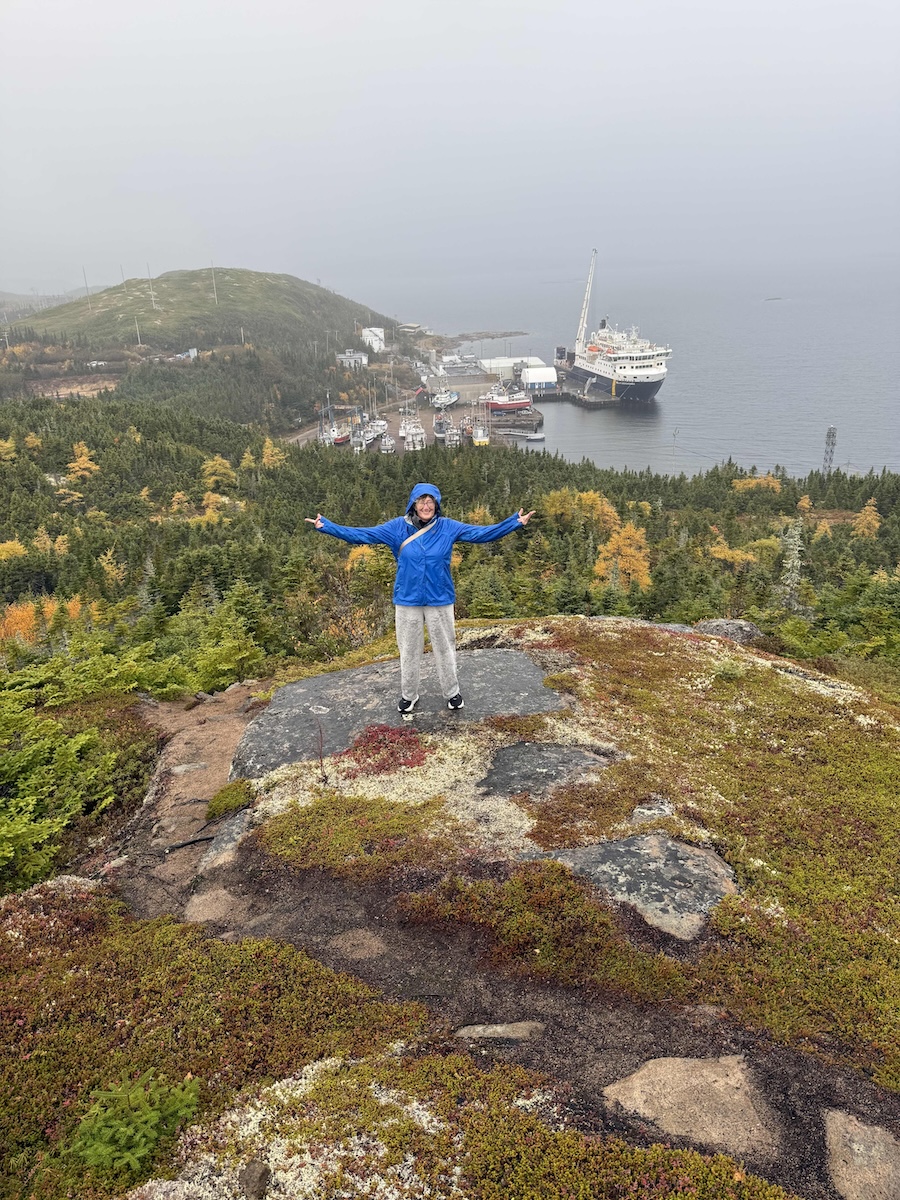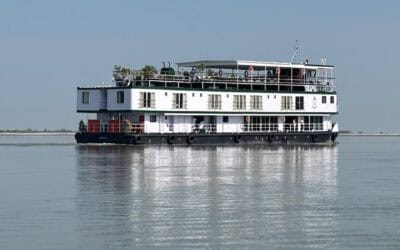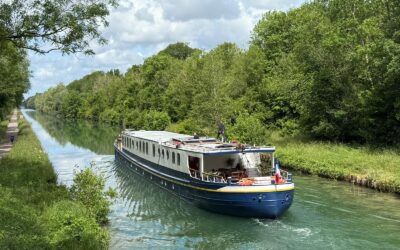Polar Tourism Guides Association (PTGA)
Polar Guide & Adventurer Graham Charles talks to QuirkyCruise's Heidi Sarna about the new Polar Tourism Guides Association (PTGA).
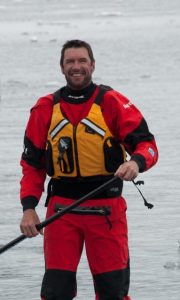
Graham Charles at work.
Graham is a passionate international adventurer who has broken records and chartered new territory in sea kayaking, skiing, cycling and mountain climbing around the world over the past three decades.
In any year, Graham can be found exploring remote and inaccessible parts of the globe, whether in charge of small-ship expeditions to the Antarctic or the Canadian and Norwegian Arctic. He also teaches photography and kayaking courses, and runs leadership programs for corporate groups.
Read more about Graham here.
QC: What is the PTGA?
Graham Charles: The Polar Tourism Guides Association, or PTGA, is a polar tourism guiding certification and assessment organization for operators, field staff, and guides who work both on expedition ships and on land. We strive to instil the highest level of safety and competence in our membership, for the benefit of the industry and the remote wilderness we operate in.
 The PTGA is a US-based, federally recognized 501-c6 non-profit professional industry association. In operation for just two months, so far two expedition cruise lines have joined — Polar Latitudes and Silversea Expeditions — and about 50 individuals. I expect the numbers to pick up before the Antarctic season (which is November – February).
The PTGA is a US-based, federally recognized 501-c6 non-profit professional industry association. In operation for just two months, so far two expedition cruise lines have joined — Polar Latitudes and Silversea Expeditions — and about 50 individuals. I expect the numbers to pick up before the Antarctic season (which is November – February).
QC: Why was the PTGA created?
Graham Charles: It was time to have some measurable industry standards that represent minimum competency for guides working in this environment. It was a no-lose opportunity whereby we would be turning this relatively loose, ad hoc group of people into a bona fide profession by saying “this is the minimum level we need to be working at and no one in our Association is below this in terms of standards.”
The PTGA’s testing methodology assesses not only competence in designated skills, but also judgement and critical thinking. In this way we move away from the prevailing method of “tick-box” testing — i.e. a guide merely performing a list of requirements.
QC: What is your role with the PTGA? How and why did you get involved?
Graham Charles: I’d written some contemporary standards testing documents a number of years ago (my background is in education and safety management) for some companies I worked for at the time, so I had a lot of draft material on hand. I’ve been loosely bashing away at this idea for years.
At the International Association of Antarctica Tour Operators (IAATO) and Association of Arctic Expedition Cruise Operators (AECO) Field Staff Conference in Toronto in 2015, I had challenged a number of people with my views on this topic and my belief that we the industry had to do something about it and not wait for a higher governing body to do it. We could control the process and content to make it truly valuable to us as guides. It had been tried in the past, but failed and I figured I knew why.
I was fired up. I started writing at the airport on the way home from that conference and didn’t stop for about four days. I designed the initial shape of the association, drafted the entire framework the qualifications were going to sit in, and fleshed out drafts of the core competency tests.
Then I started emailing people all over the polar tourism sphere to read the drafts and engage in discussion. A lot of people contributed and it strengthened my belief that the time was right. It got to a point where I felt our draft material was robust and the shape of the Association was in place. I registered it in the US as I spend most of the year there and looked for a Board to help out. The rest is, well, in development.
Currently I’m the inaugural president, after a vote by board members.
QC: How were polar professionals assessed before PTGA?
Graham Charles: There has been no qualification system that was aimed specifically at polar tourism guiding and field skills, unlike the formal training required for Galapagos naturalists. If you happen to be a mountaineer or outdoor educator, you have good crossover skills to qualify you for field work and guiding.
There are many substitute attendance-based certificates that were called on to be surrogate “industry standards” like the RYA II boat test to be qualified to drive a Zodiac. These are perfectly good certificates for what they were designed for, but they cannot and do not look at all the skills needed to operate a Zodiac in the polar environment. Additionally, they are mostly “attendance” programs with no assessment of actual skills. We advocate putting into place a set of Polar Tourism Qualifications, or PTQs.
QC: What are Polar Tourism Qualifications (PTQs)?
Graham Charles: I designed the PTQ framework and the seven core qualifications, and sent a draft of the content to a number of industry people for feedback. The PTQs are not law, so guides don’t “have” to follow them, and so PTQ’s haven’t change the landscape of employment that much — yet.
QC: How does the growing number of ships heading to the poles affect polar professional staffing for the expedition cruise lines?
Graham Charles: As polar companies grow their fleets, they are forced to realize how valuable quality staff are and that they might have been taking some fairly big risks with some of the people they were employing. The more untrained people you put on a vessel, the more risk you expose yourself to.
I think the industry has reached a maturity level whereby investment in human resources has now surfaced as an important budget and strategy item.
Companies can always find someone who wants to go to the polar regions and work hard for minimal wages. However, the trick is to have strategies, allegiance and incentives to keep good people coming back to your company. Now the cruise lines are faced with this pesky human resource issue and how to develop it.
QC: What are the biggest challenges facing polar tourism?
Graham Charles: Climate change, over-crowding and staffing are the biggest challenges in my opinion. The changing nature of the polar regions due to the impacts of climate change is undeniable. Overcrowding is a huge threat. The industry will have to work hard to keep any semblance of what had been coined “expedition cruising,” where people went to new places and had no-one or very few other people around competing for sites. Often the excursions were exploratory and you could really deliver a middle-of-no-where experience.
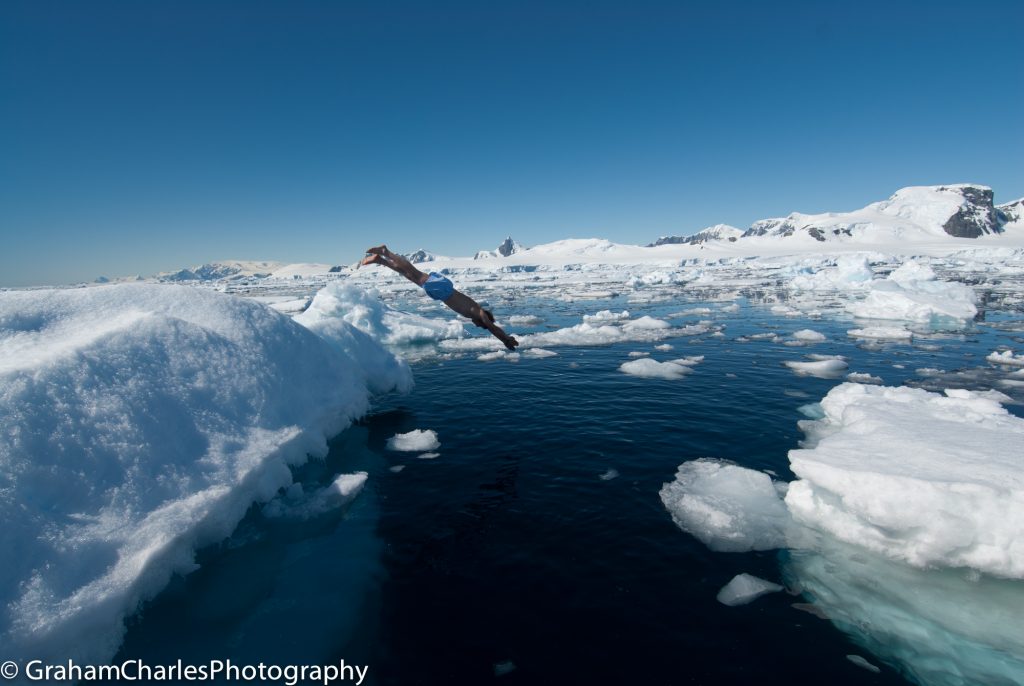
Middle of nowhere! * Photo: Graham Charles
These days, it seems like Svalbard and the Antarctic Peninsula are transitioning to destination cruising, or at very best polar cruising. Everything is known, the formula is set, schedules are tight and people are aware of other people around.
Of the 43,000 ship-borne tourists who visit Antarctica, 90% of them go to some of only 20 sites!
QC: So how many additional sites are available and not used? And how many new landing locations are needed and how many can you actually add?
Graham Charles: Anywhere you can get to shore is a landing, so there are plenty. They aren’t all great spots though. Obviously people want highlight spots with penguins, history, a hike, safety etc. These are more limited. People can find their own sites and just explore. That is part of the fun and the original concept of expedition cruising — going to places you have little or no idea about and making it work. This is being lost as people now largely follow a formula.
QC: Are truly authentic “explorations” a thing of the past?
Graham Charles: There is a loss of authenticity I think, which is why small 10- to 20-passenger boat cruises (for instance sailboats in Svalbard and some high-end luxury yachts from EYOS, a purveyor of bespoke yacht cruises) are filling the gap of what 100-passenger vessels used to do — go exploring. I think some of the bigger companies will start to offer smaller vessels with well-catered, high quality staff experiences that step back into the “expedition” realm as discerning clients with the ability to pay try to reclaim some of what the industry used to offer.
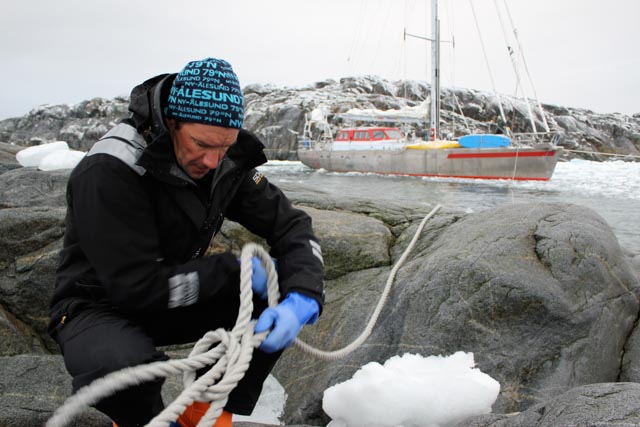
Graham Charles tying up a small vessel in the Arctic.
QC: How will the PTGA mitigate the challenges ahead?
Graham Charles: The PTGA believes with the increasing pressure predicted in the next five years and talk of limiting operations to one landing per day, companies that have an industry-specific trained and qualified set of guides and field staff who have a breadth of experience and the ability to make effective decisions and judgements about how to explore and use new areas, will be much better off.
This solid base of staff will allow companies to find new things to do at virgin, unproven landings and locations and keep just a little bit of the expedition and exploration alive.
Guides and field staff live for this stuff. If they have some zest in their stride, the clients will feel it and it will feel extraordinary. In turn, the excitement for the polar regions is heightened and ultimately the company benefits.
Increase the competence and skills of your guides and field staff, and everybody gains.
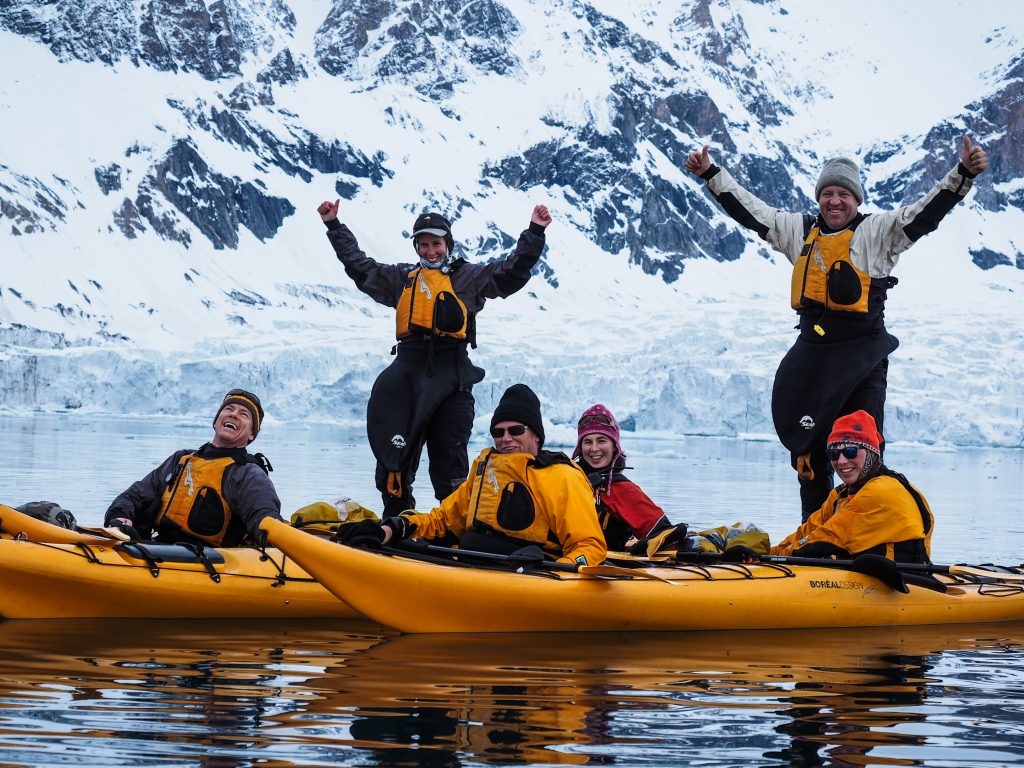
* Photo: Graham Charles
QC: What are the biggest challenges facing the PTGA? Getting the expedition lines to join? Getting guides to join?
Graham Charles: Gaining acceptance and lack of knowledge are our biggest challenges. We are doing as much as we can currently to be present and available to engage with people, answer questions and explain how the system works. It will take time.
At the end of the day, if the system doesn’t offer value and ease of use it will crash and burn, so we are working hard to collaborate and make change. It’s a learning process. Companies will take further time because of economic reasons and the time needed for due diligence.
Ultimately for the PTGA to survive, there has to be acceptance by the industry, policy makers and even lawmakers. The industry will give us the membership and finance we need to survive and policy makers will confirm our framework and methodology has tangible merit, and this will feed back into membership.
— HMS
Don’t miss a post about small-ship cruising, subscribe to QuirkyCruise.com for monthly updates & special offers!
© This article is protected by copyright, no part may be reproduced by any process without written permission from the author. All Rights Reserved. QuirkyCruise.com.

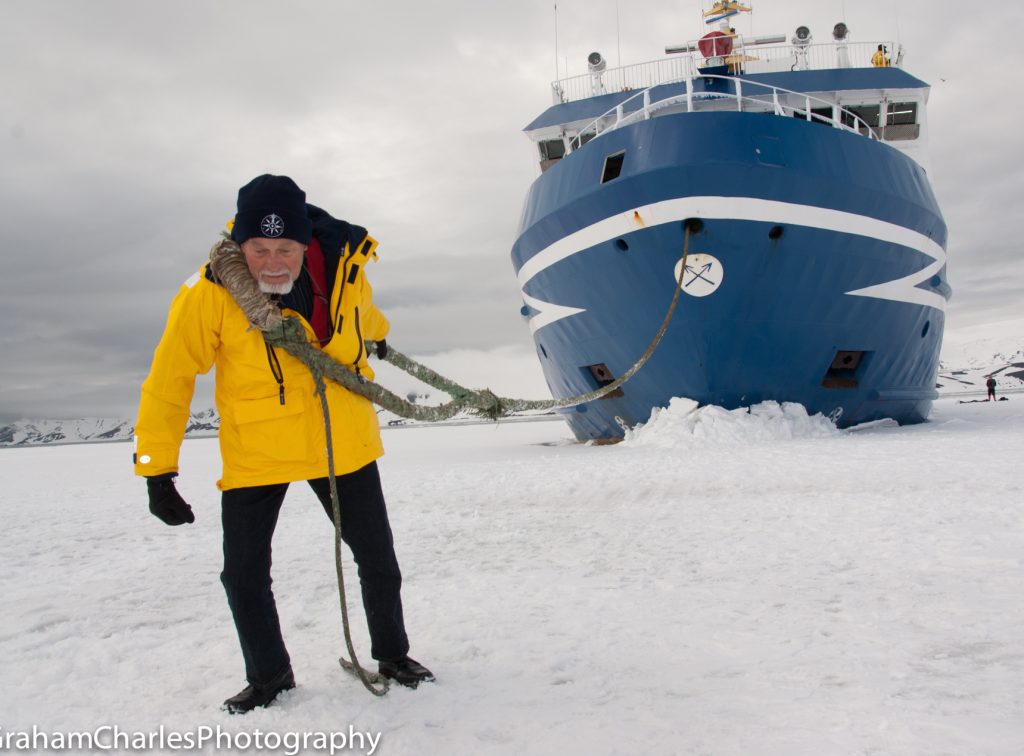

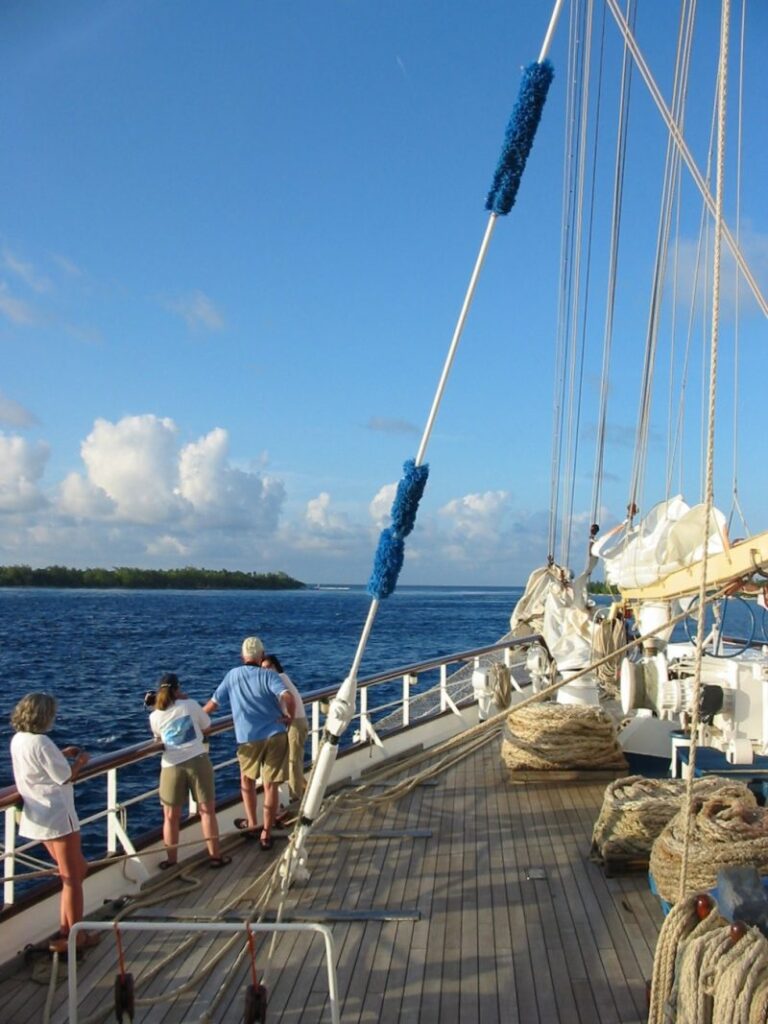
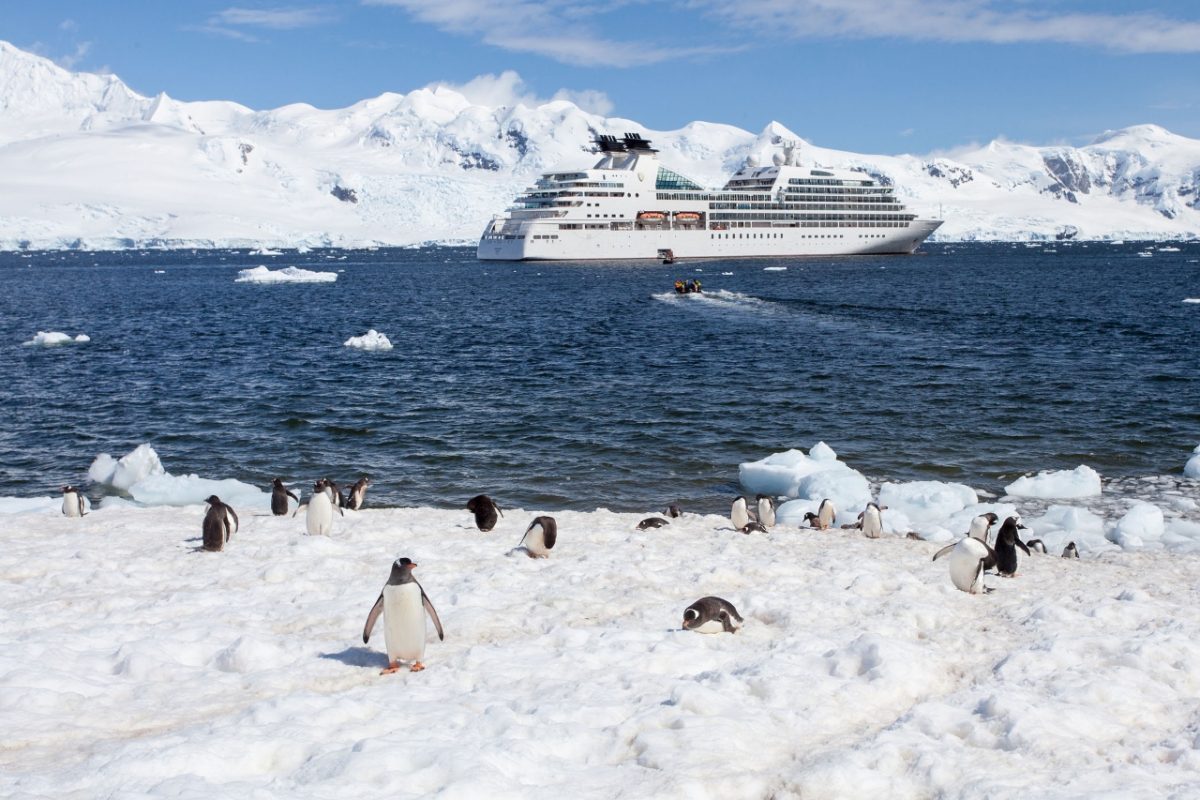
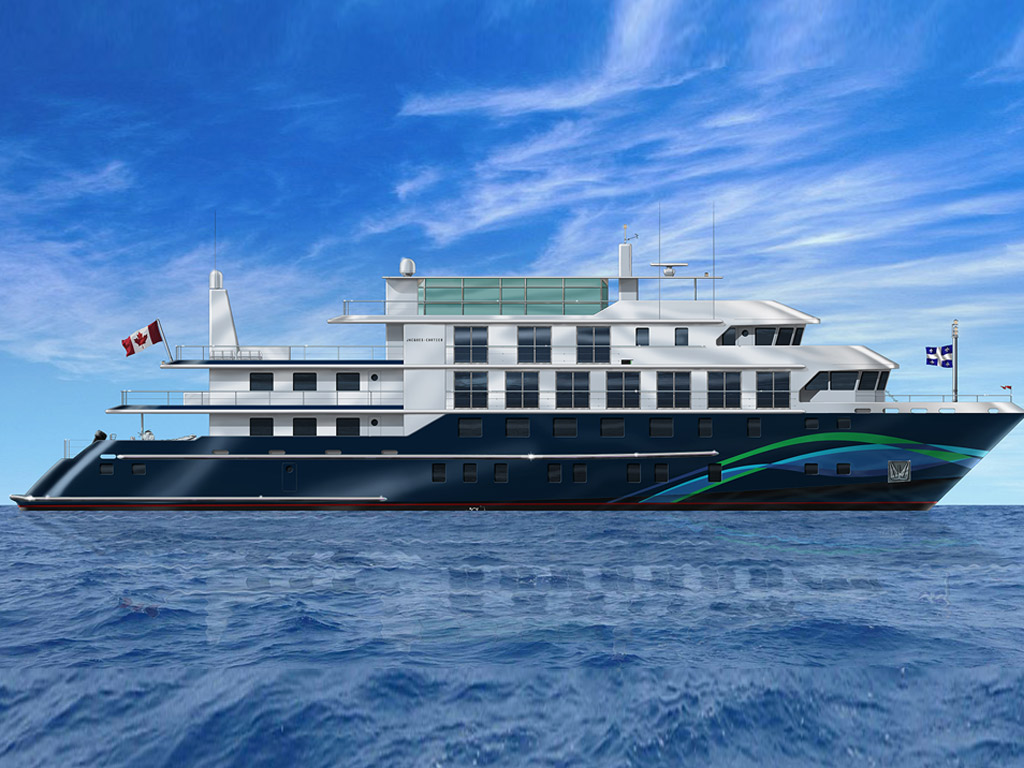
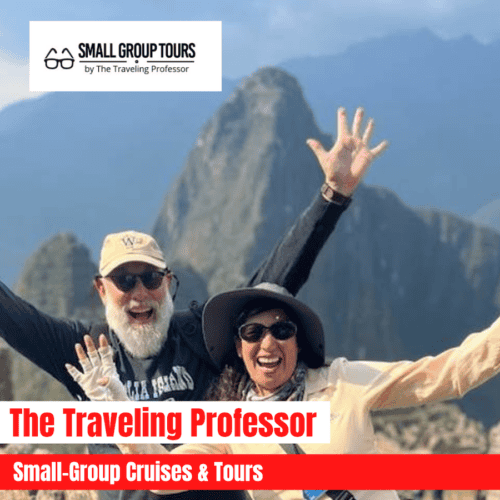
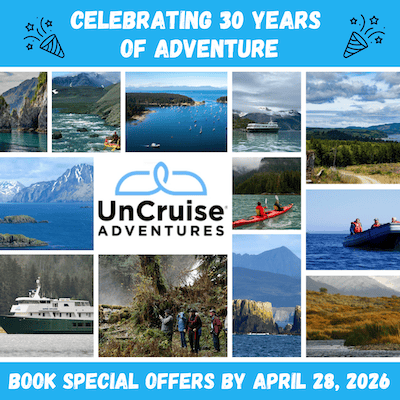
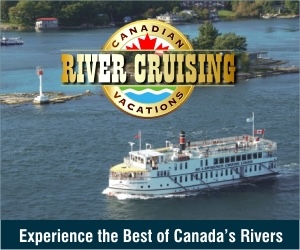

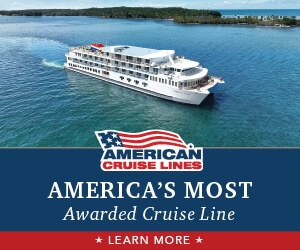

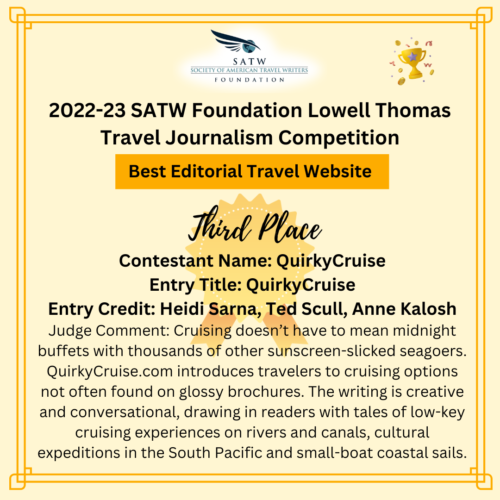


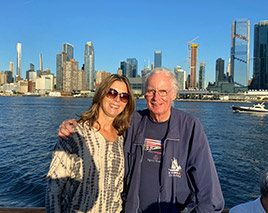 HEIDI SARNA
HEIDI SARNA
